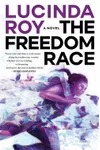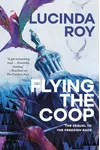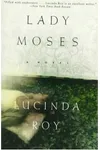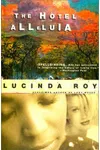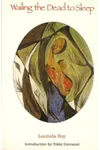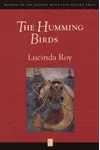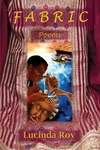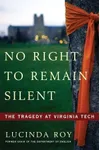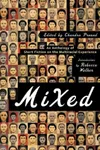Picture a British-American storyteller who weaves tales of race, identity, and resilience with poetic grace—meet Lucinda Roy! Born in London to a Jamaican writer and an English actress, Roy’s biracial heritage fuels her powerful narratives. From her speculative novels to her poignant poetry, she invites readers to confront tough truths while dreaming of new possibilities.
As a Distinguished Professor at Virginia Tech, Roy not only crafts stories but also inspires students to find their voices. Her work, like the acclaimed 'The Freedom Race,' blends speculative fiction with deep social commentary, making her a vital voice in contemporary literature.
The Making of Lucinda Roy
Born on December 19, 1955, in Battersea, South London, Lucinda Roy grew up in a creative household. Her father, Namba Roy, was a Jamaican writer and artist, while her mother, Yvonne Roy, was an English actress and teacher. This blend of cultures shaped her worldview and storytelling. After earning a Bachelor of Arts in English from King’s College London, Roy moved to the United States, where she completed a Master of Fine Arts in creative writing at the University of Arkansas. Her early career saw her teaching in West Africa and the UK, experiences that enriched her understanding of identity and diaspora.
Lucinda Roy’s Unforgettable Stories
Roy’s writing spans poetry, novels, and memoirs, each infused with lyrical prose and unflinching honesty. Her first poetry collection, 'Wailing the Dead to Sleep' (1988), introduced her raw, emotive style, with an introduction by poet Nikki Giovanni. In 1995, 'The Hummingbirds' won the Eighth Mountain Poetry Prize, selected by Lucille Clifton, cementing her poetic prowess.
Her novels are equally compelling. 'Lady Moses' (1998), a semi-autobiographical tale of a biracial woman’s journey, was a Barnes and Noble Discover Great New Writers selection. 'The Freedom Race' (2021), the first in her 'Dreambird Chronicles' trilogy, imagines a future where slavery persists, following a biracial protagonist’s quest for freedom. Its sequel, 'Flying the Coop' (2022), deepens this speculative world. Roy’s memoir, 'No Right to Remain Silent' (2009), reflects on the Virginia Tech shooting, drawing from her experience mentoring the shooter, Seung-Hui Cho, and advocating for campus safety.
Roy’s style blends vivid imagery with social critique, exploring themes of race, survival, and hope. Her speculative fiction reclaims myths, infusing them with magical realism to challenge historical and future injustices.
Why Lucinda Roy Matters
Lucinda Roy’s impact lies in her ability to bridge personal and political narratives. Her work resonates with readers seeking stories that reflect the complexities of identity and systemic inequality. As a professor, she has mentored countless writers, fostering diversity in literature. Her keynotes on race, education, and campus safety amplify her influence, making her a thought leader in and beyond academia.
Roy’s speculative fiction, in particular, offers a lens to imagine resilience in dystopian futures, inspiring readers to confront today’s challenges. Her legacy is one of courage, creativity, and compassion, urging us to tell our own stories.
- Born: December 19, 1955, Battersea, South London
- Key Works: 'Lady Moses,' 'The Freedom Race,' 'No Right to Remain Silent'
- Awards: Eighth Mountain Poetry Prize, Baxter Hathaway Prize, Honorary Doctorate from University of Richmond
Snag 'The Freedom Race' and dive into Lucinda Roy’s bold, thought-provoking world of speculative fiction!
